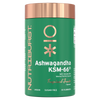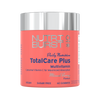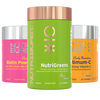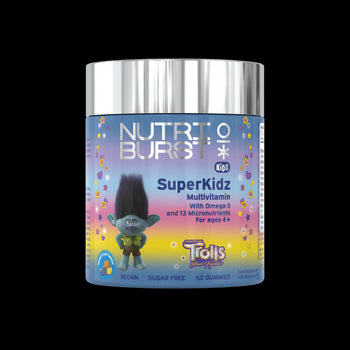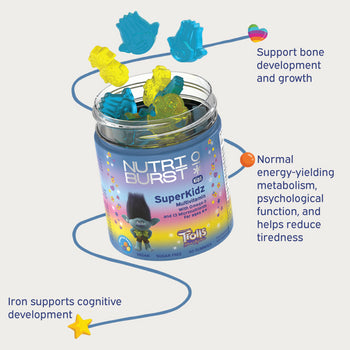Boosting the Immune System: 5 Ways to Give It a Head Start Against Viruses
Written by Helly parekh

By Jenny Tschiesche BSc(Hons) Dip(ION) FdSc BANT
What with a global pandemic taking place currently and a possible second wave waiting in the wings our thoughts have turned to help our immune systems to be in the optimal position to fight off looming viruses, not least the current and most prevalent Covid-19. If you want to give your body the best chance, then do take notice of the following five pointers.
Think Zinc
Zinc is known to help fight off viruses and bacteria. It does this by stopping viruses gaining full access to our cells. A specific protein within the body entices zinc into the cells that are first-responders against infection. It is the presence of sufficient amounts of zinc that ensures the immune system does not spiral out of control. If a virus strikes and you have low levels of zinc, the consequences include excessive inflammation which in turn can lead to myriad other illnesses.
- Did you know that both cacao powder and nuts are good sources of zinc? It is time to make a breakfast smoothie, hot chocolate, or homemade chocolate and nut raw brownie balls
Up the Anti(oxidants)
Antioxidants are substances that can prevent or slow damage to cells caused by free radicals - unstable molecules that the body produces as a reaction to environmental and other pressures.
Some of our key antioxidants include:
- Vitamin A which plays a key role in maintaining the health of our mucosal surfaces including the inside of our nose and our gastrointestinal tract. It is fat-soluble so enjoy alongside fat-containing dishes. A brightly-coloured root vegetable soup for example with a dose of fresh ginger and full-fat yogurt on top would work well.
- “Vitamin C is important to maximise the body’s anti-oxidative capacity and natural immunity to prevent and minimise symptoms when a virus attacks the human body.” A Saul – editor Orthomolecular Medicine News Service, January 26, 2020. Consume plenty of vitamin C rich foods daily – citrus, berries, red pepper, Kiwi fruits, papaya are good examples. Enjoy a fruit salad: tinned mandarins in fruit juice + kiwi, apple/pear (the fruit juice helps to preserve the fruit salad for longer.
- Vitamin E is a potent antioxidant which is also fat-soluble. Foods rich in Vitamn E include avocado, olives and olive oil, nuts, wholegrains, seeds. Enjoy fresh pesto on wholegrain pasta, smashed avocado on toast, olive oil-based dressings on salad

Nourish your gut
Your digestive system is where 70 percent of the immune system resides, the majority of which is in the form of good bacteria. Not only do our microbes form protective barriers, they also programme our immune system. Animals bred with no microbiome have less well-developed immune responses. Older people, and those with diseases that are characterised by inflammation, such as allergies, asthma, rheumatoid arthritis, and diabetes, tend to have less varied gut microbiomes.
- Add fermented foods like sauerkraut or kimchi, but gradually, otherwise you can experience some less socially acceptable side-effects!
- Eat a higher fibre diet so you provide prebiotic (food) for your good bacteria to thrive.
Get some rays
Vitamin D enhances the natural immune response against various infections, including flu and upper respiratory tract infections. Whilst the best source of vitamin D is sunshine you can also find it present in some foods, especially fortified foods, and supplements.
In a recent study it was found that the Nordic countries had higher levels of Vitamin D than Spanish and Italians who get far more sunshine than their Nordic counterparts. This has been put down to the fortification of foods and availability of supplements in the Nordic countries.
- Foods sources of Vitamin D include oily fish, egg yolks and cheese as well as fortified foods of course.

Watch your weight
(through diet and moderate exercise)
If you are overweight, particularly with too much fat around the middle, this can lead to chronic inflammation which in turn can make the immune system less effective. People who are obese are more likely to get infections and vaccines are less likely to work. Furthermore, carrying too much weight around your middle can make you prone to type 2 diabetes, which in turn makes you prone to infections.
- Try to reduce your reliance on sugars, and refined carbohydrates. Instead, ensure you eat protein and fibre rich foods at mealtimes and snack on vegetables in between.
Researchers at the University of California San Diego School of Medicine have found that 20 minutes of brisk walking was enough to significantly reduce the levels of tumour necrosis factor, a cytokine that drives chronic inflammation.
- Take a brisk walk of 20 minutes in length daily.
Shop related products here:
|
Energy - Vitamin C £19.99 |
Healthy Muscles and Bones - Calcium and vitamin D £21.99 |
|

